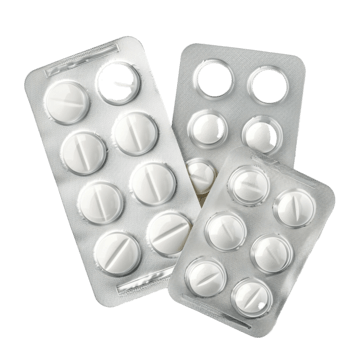Clindamycin

Clindamycin 150mg, 300mg
Clindamycin is a lincosamide antibiotic used to treat a variety of bacterial infections by inhibiting bacterial protein synthesis, effectively stopping the growth and reproduction of bacteria. It is commonly prescribed for conditions such as skin infections, respiratory tract infections, and certain dental infections. Clindamycin is often chosen for patients who are allergic to penicillin or when bacteria are resistant to other antibiotics.
Order NowDescription
Clindamycin is a lincosamide antibiotic used to treat a variety of bacterial infections. It is effective against anaerobic bacteria and some aerobic gram-positive bacteria. Clindamycin works by inhibiting bacterial protein synthesis, thereby preventing the growth and replication of bacteria.
Uses / Indications
- Skin and soft tissue infections (such as cellulitis and abscesses)
- Bone infections (osteomyelitis)
- Respiratory tract infections (including sinusitis and pneumonia)
- Gynecological infections
- Dental infections (such as periodontal infections)
- Acne treatment
Dosage and Administration
Adults:
The usual dosage is 150 mg to 450 mg every 6 to 8 hours, depending on the severity of the infection.
Pediatric patients (ages 1 month and older):
Dosage is based on body weight: 8 to 25 mg/kg/day divided into three or four doses.
Note: Dosage may vary based on the type of infection and the physician’s assessment.
How It Works (Mechanism of Action)
Clindamycin binds to the 50S subunit of the bacterial ribosome, inhibiting protein synthesis. This action disrupts bacterial growth and reproduction, effectively treating the infection by eliminating the pathogenic bacteria.
Side Effects
Common side effects:
- Nausea
- Diarrhea
- Abdominal pain
- Rash
Rare/serious side effects:
- Severe allergic reactions (rash, itching, difficulty breathing)
- Clostridium difficile-associated diarrhea
- Liver dysfunction (elevated liver enzymes)
If serious side effects occur, seek immediate medical attention.
Precautions / Warnings
- Inform your doctor if you have a history of liver disease, intestinal problems, or are pregnant/breastfeeding.
- Use caution in patients with a history of allergic reactions to antibiotics.
- May cause diarrhea; monitor closely and report severe cases.
Drug Interactions
May interact with:
- Neuromuscular blocking agents (may enhance effects)
- Erythromycin and other macrolide antibiotics (may reduce efficacy)
- Certain medications affecting liver enzymes
Always inform your healthcare provider about any other medications or supplements you’re taking.
Storage Instructions
- Store at room temperature (15°C–30°C / 59°F–86°F)
- Keep away from moisture, heat, and direct light
- Keep out of reach of children
Missed Dose / Overdose
Missed a dose?
Take it as soon as you remember. If it’s almost time for your next dose, skip the missed one. Do not double up.
Overdose symptoms:
- Nausea or vomiting
- Severe diarrhea
- Skin rash
Contact a poison control center or seek emergency medical help immediately if overdose occurs.
Contraindications
- Known hypersensitivity to clindamycin or lincomycin
- History of gastrointestinal disease, particularly colitis
Brand Names / Alternatives
- Cleocin
- Clindagel (topical form)
- Clindesse (vaginal cream)
- Generic name: Clindamycin

